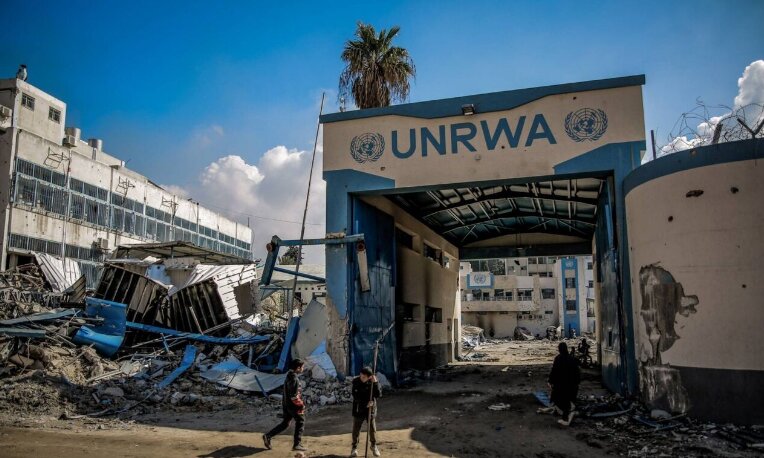Israel’s visa denials: A calculated strategy to undermine humanitarian oversight in Gaza

TEHRAN- Israel’s repeated refusal to renew visas for the heads of critical United Nations agencies operating in Gaza signals a disturbing and deliberate tactic to obstruct independent humanitarian oversight amid one of the world’s most protracted conflicts.
Specifically, the agencies in question are the Office for the Coordination of Humanitarian Affairs (OCHA), the Office of the High Commissioner for Human Rights (OHCHR), and the United Nations Relief and Works Agency for Palestine Refugees (UNRWA), which are all frontline organizations delivering aid and documenting human rights violations in Gaza’s difficult conditions. By shutting down visa renewals systematically, Israel restricts these organizations' ability to operate, which serves to limit the assistance and accountability.
Retaliation against accountability
These refusals for visas should not be slighted simply as routine administrative practices, but rather, as a systematic form of retaliation. UN humanitarian officials have practically linked the visa refusals to their agencies' advocacy and public statements on Israel's actions that harm Palestinian civilians.
Each public statement recording civilian suffering and suggesting some type of violation of international law brings escalating restrictions that signal a conflict between Israel's political goals and the UN's commitment to protect human rights.
Israel tries to defend these actions by claiming that certain UN agencies have been compromised by ties to resistance groups like Hamas; however, UN leadership has repeatedly denied these claims, and there is no proof to back them up. Instead of addressing any substantiated security threats, these narratives seem to be designed to undermine independent humanitarian actors and interfere with their missions.
The broader context of shrinking humanitarian space
This obstruction urges the stem of a larger trend aimed at oppressing international oversight in the occupied Palestinian territories. Just recently, the U.S. imposed sanctions on Francesca Albanese, the Special Rapporteur of the United Nations on the occupied Palestinian territories, placing further stress on the volatile political environment.
Albanese was sanctioned for principally supporting investigations of the International Criminal Court into alleged war crimes by Israeli and US actors-interpreted widely by human rights advocates as a measure to intimidate UN officials and discourage them from holding actors accountable.
Humanitarian and legal consequences
The impact of these policies is not abstract—it is devastating on the ground. Denying visas to UN agency leaders restricts their ability to operate effectively, resulting in delays, diminished coordination, and reduced access to vulnerable populations in Gaza. With over two million Palestinians reliant on aid amid a backdrop of conflict and blockade, any impairment of UN operations magnifies the humanitarian crisis and leaves civilians increasingly exposed to harm.
Moreover, removing or undermining independent observers damages the fundamental principles of neutrality, impartiality, and transparency that underpin the international humanitarian system. Without credible and present actors witnessing and documenting events, violations of international humanitarian law may continue unabated, shielded from international scrutiny and justice.
Eroding norms and the risk to accountability
The calculated sidelining of UN personnel through visa refusals and sanctions sets a dangerous precedent for global governance. When states leverage bureaucratic mechanisms and political pressure to expel or intimidate humanitarian actors, the foundational norms that protect civilians during armed conflict are eroded. This not only impacts Gaza but signals a broader risk for conflict zones worldwide—where political interests may override the universal commitment to human rights.
The international community faces a crucial test: whether to uphold the integrity of humanitarian mandates and international law or acquiesce to state efforts that obstruct transparency and accountability. Without decisive action, Gaza risks becoming a “black hole” for justice, where suffering continues unseen and unaddressed.
Leave a Comment